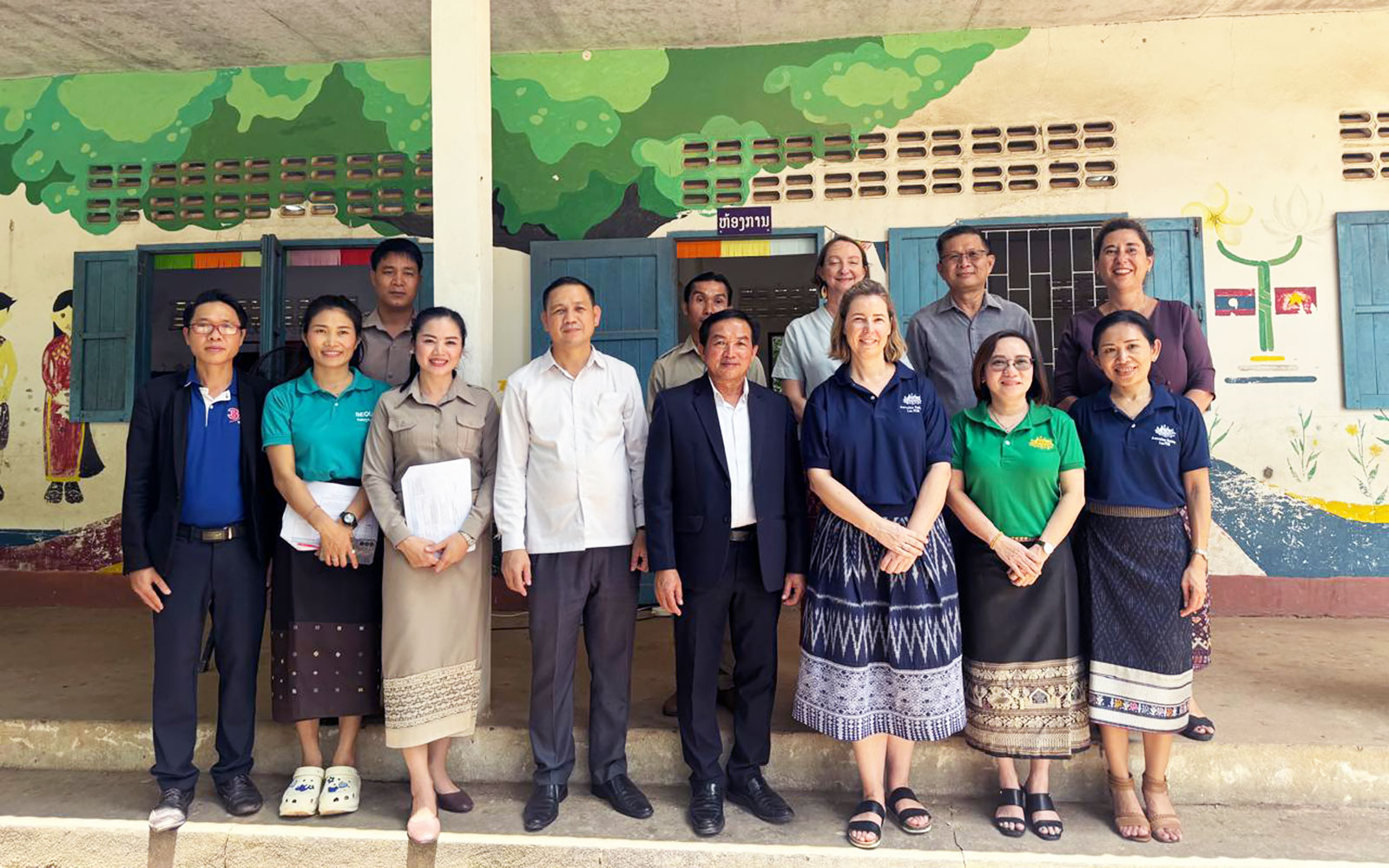
Dr Anoulom Vilayphone, MoES and Ms Vanessa Hegarty, Australian Embassy observing the filming of the video on Spoken Lao activities
Two new videos covering ‘Strategies for Classroom Management’ and ‘How to teach the activities of the new Spoken Lao Program’ are being released this month
The Ministry of Education and Sports of Lao PDR, with support from Australia through the Basic Education Quality and Access in Lao PDR (BEQUAL) program, has produced two new teacher development videos on classroom management and Lao language teaching techniques for non-Lao speaking students. The videos were produced by the Research Institute of Educational Sciences (RIES) and are fully aligned with resources developed by the Department of Teacher Education (DTE) to support teachers’ continuing professional development.
Associate Professor Dr Anoulom Vilayphone, Director General of RIES, said “Teachers in Lao PDR are often working in difficult and remote conditions. They face many challenges such as students not speaking Lao when they start school, over-crowded classes, and multigrade classes. Since 2019, RIES, with support from Australia, has been producing a variety of videos to provide teachers with guidance and demonstrations of effective teaching practices responding to their most common challenges. The two latest videos were filmed in remote classrooms in Kham district, Xiangkhouang province and in Xaythani district, Vientiane Capital to show real examples of the techniques in practice. The videos are also dubbed in Sign Language to be more accessible for all teachers.”
Teacher Development Video topics are selected to respond to the key challenges faced by teachers, based on feedback from teachers themselves. Teachers can use the videos to prepare lessons, improve their teaching methods, and learn or review specific techniques from the new curriculum Teacher Guides. Pedagogical support staff based at district and school levels can also use these videos when supporting teachers.
Ms Vanessa Hegarty, First Secretary, Australian Embassy, said “Australia and the Ministry of Education and Sports are working together to ensure teachers are well-equipped with resources and supported to apply new teaching techniques. Australia strongly believes that with the current teacher shortage situation, it is important that teachers feel heard, understood, and most importantly supported. This is key to addressing the challenges they face when teaching, especially in remote areas. We want to keep teachers motivated and empowered so they remain committed to their vital roles teaching the future generation of leaders and thinkers. Australia supports continuous professional development for teachers so they can improve the quality of their teaching.”
The topic of Teacher Development Video number 24 is ‘Classroom Management’. Classroom management is a key strategy to ensure students can work independently and be actively engaged in learning. This is essential in Lao PDR where over a third of primary classes are multigrade. Classroom management skills are also needed to effectively teach the student-centred pedagogical approach of the new curriculum, which incorporates more games, hands-on activities and pair and group work. Good classroom management not only makes teachers’ lives easier but can also have a positive impact on students’ academic engagement and learning outcomes. Good classroom management creates an environment that stimulates learning. The video unpacks six classroom management strategies that can be easily applied by teachers across all primary grades and subjects.
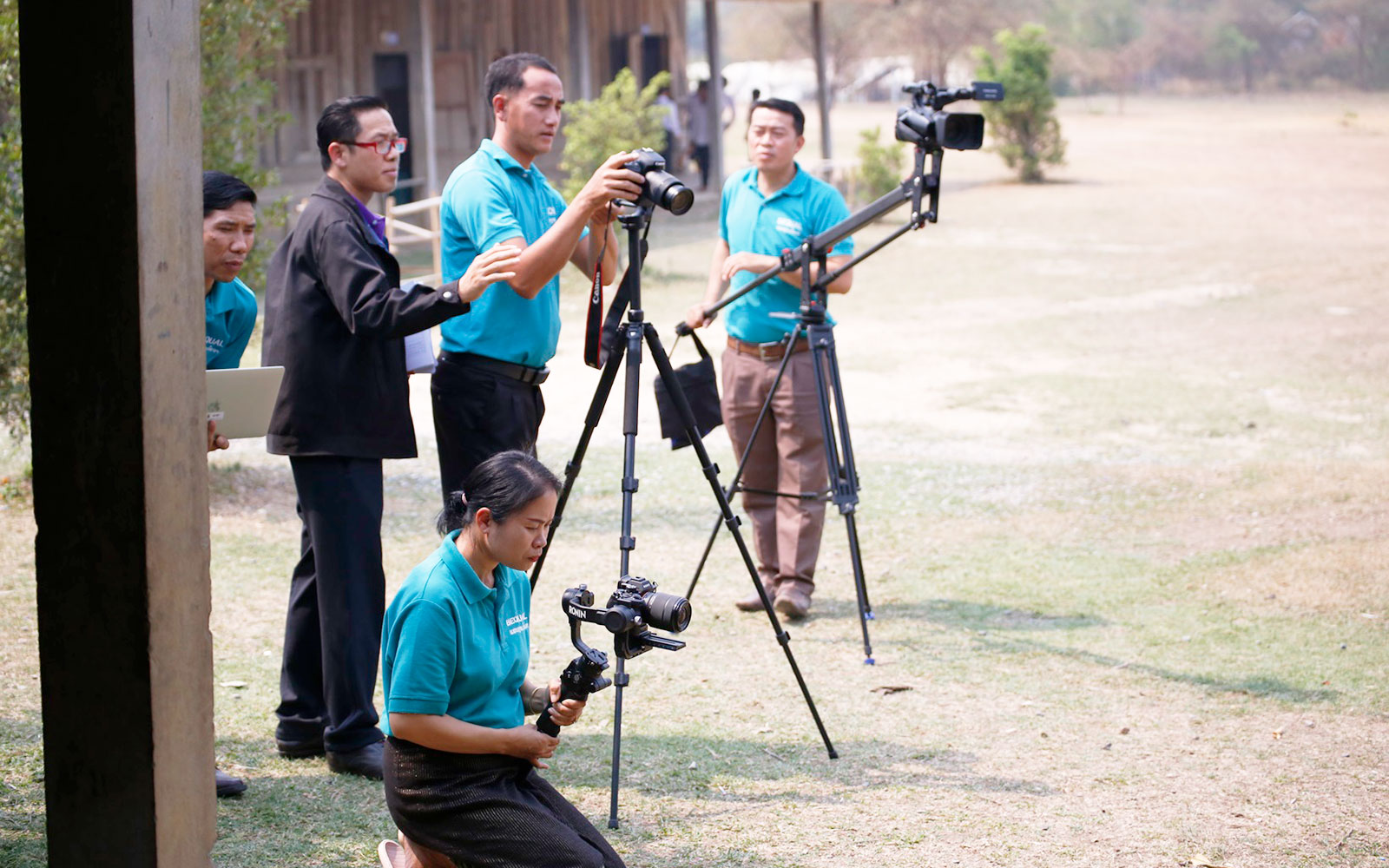
Production team getting ready in Xiangkhouang province for filming of the video on classroom management
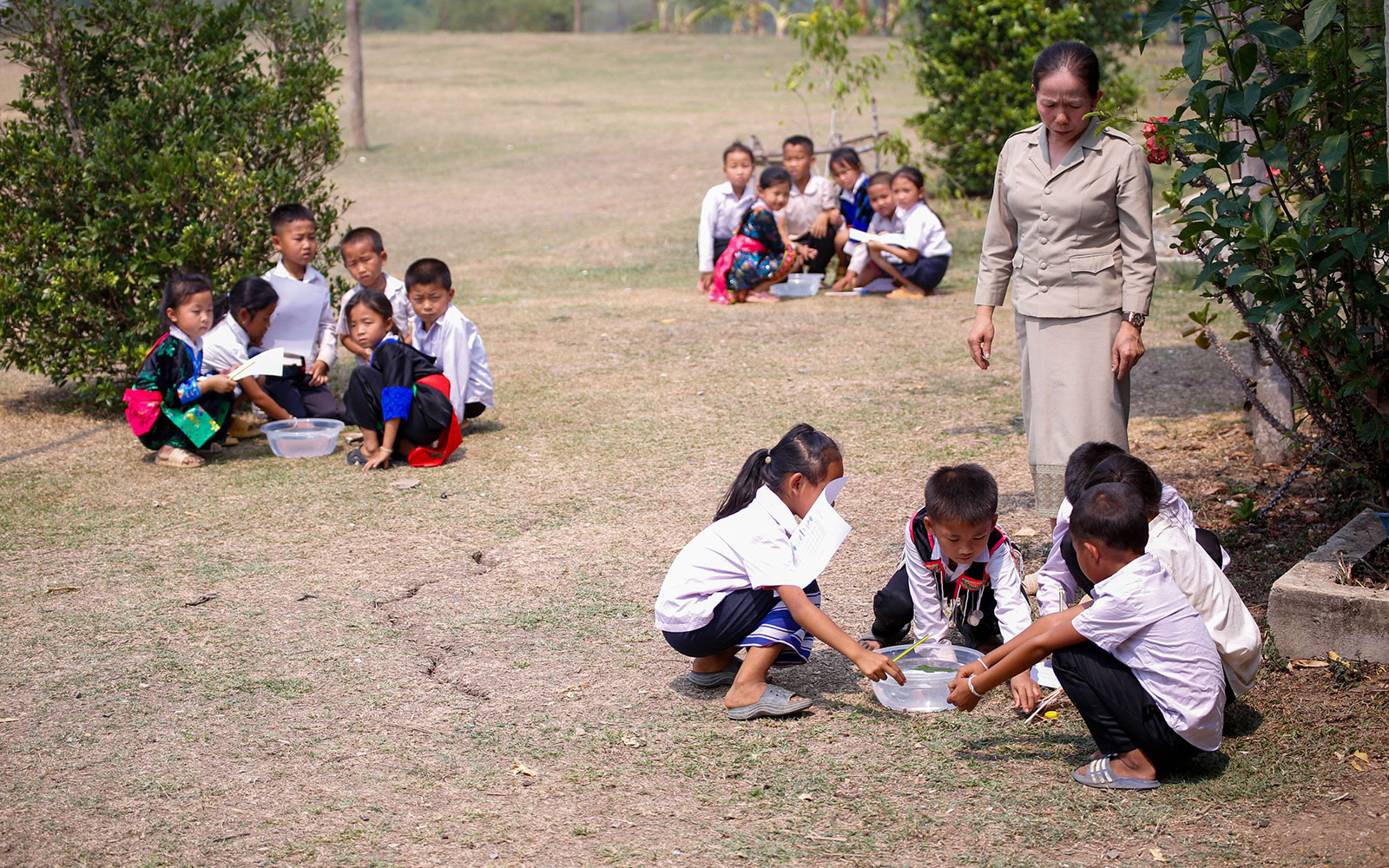
How to manage outside activities is one of the techniques explained in TDV 24
The new Teacher Development Video number 25 demonstrates how to teach three key activities from the Spoken Lao Program. This program was developed by MoES with the support of Australia and rolled out nationwide in September 2024. The video demonstrates techniques teachers can use to help grade one students who don’t yet speak Lao when they enter primary school to develop their Lao language skills. The video includes prompts to encourage teachers to reflect on their own practice and how they will change their teaching to ensure students understand and are learning.
Dr Anoulom said “Teaching a new curriculum is always challenging for teachers. The Spoken Lao video will help them understand how to effectively implement the core activities in each lesson.”
Ms Hegarty added “The Spoken Lao Program is a great example of how a successful small pilot can become a program approved for teaching nationwide. Australia is proud to promote teaching strategies that will ensure inclusive education and better learning outcomes for all students, especially students who need additional support to build their Lao language communication skills. We want all students to know they can thrive and learn at school. Addressing the language gap is key to keeping non-Lao speaking students in school.”
To ensure that all teachers can access these new resources, both videos are hosted on a variety of channels: Lao ESTV – Education and Sports TV Channel on Lao Satellite 8, Khang Panya Lao, ວິດີໂອສໍາລັບການພັດທະນາຄູ Teacher Development Videos YouTube channel, and on tablets used by pedagogical support staff working with teachers.
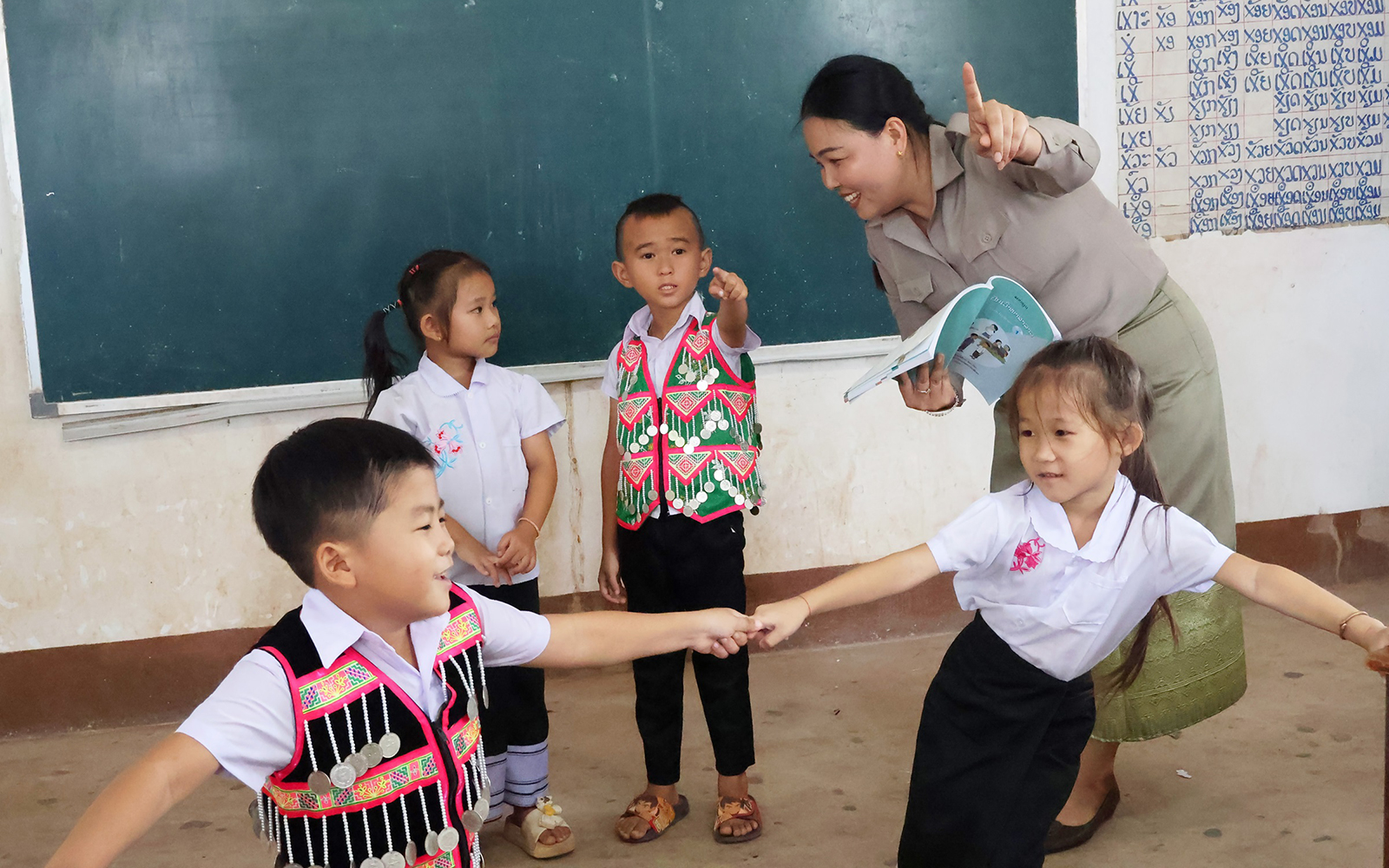
One of the key activity demonstrated in TDV 25 is role play
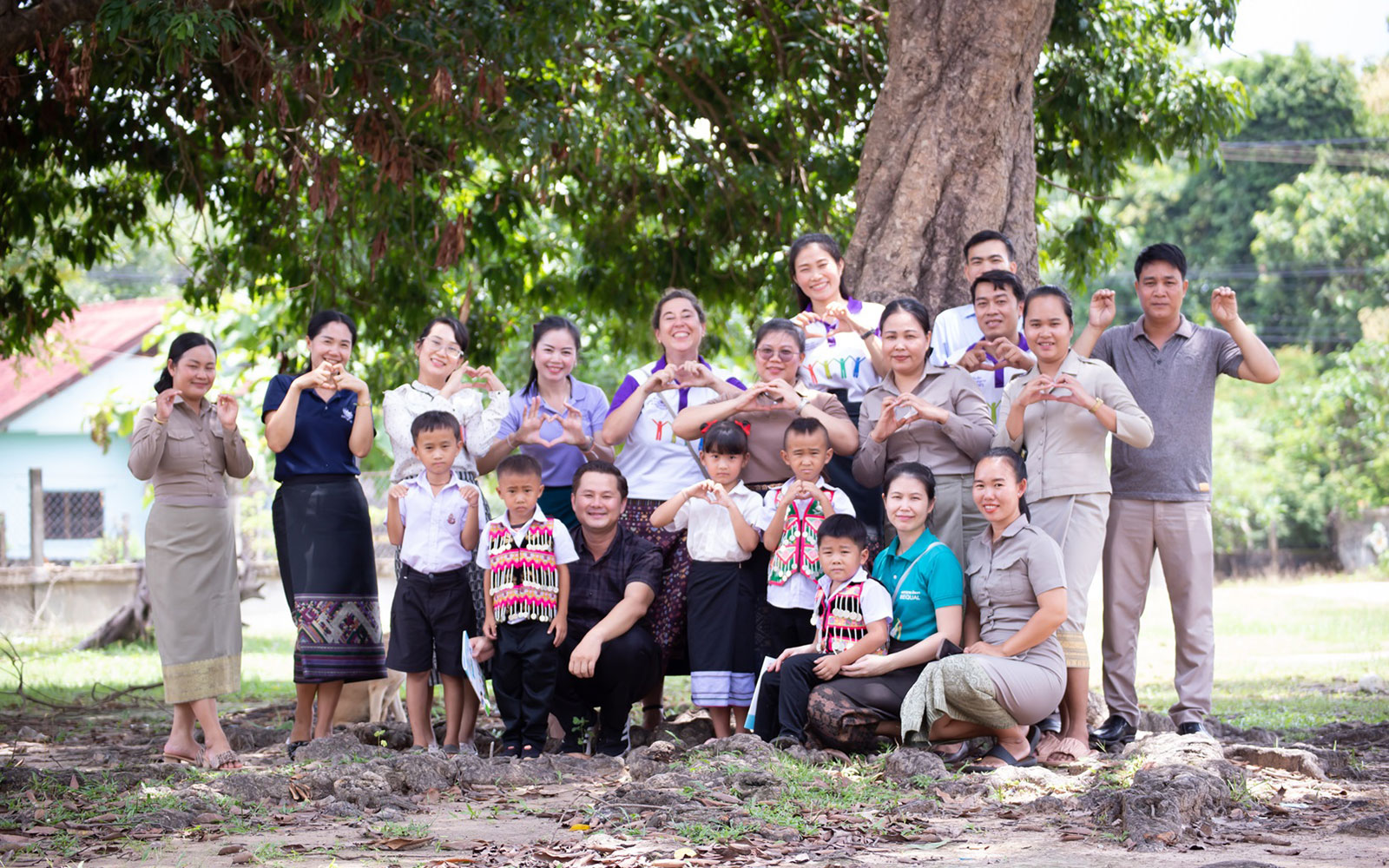
Production team and students from the filming of TDV 25 in Vientiane
BEQUAL is a program led by the Lao Government with support from the Australian Government and the United States Agency for International Development (USAID). The program focuses on enhancing educational outcomes for the nation’s youth, especially the vulnerable and disadvantaged. BEQUAL is focused on ensuring gender equality and promoting inclusive education across all activities.
Link to watch the VDOs:
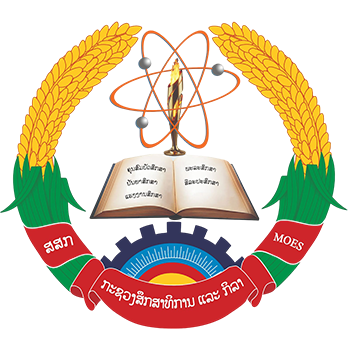


 ພາສາລາວ
ພາສາລາວ